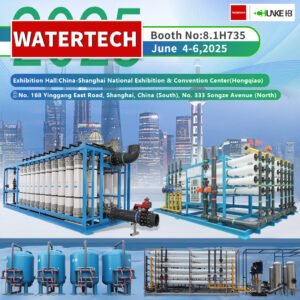Reverse Osmosis & Water Treatment in Uganda
CHUNKE projects of Reverse Osmosis Water Treatment in Uganda including different types of water treatment systems and water treatment plant.
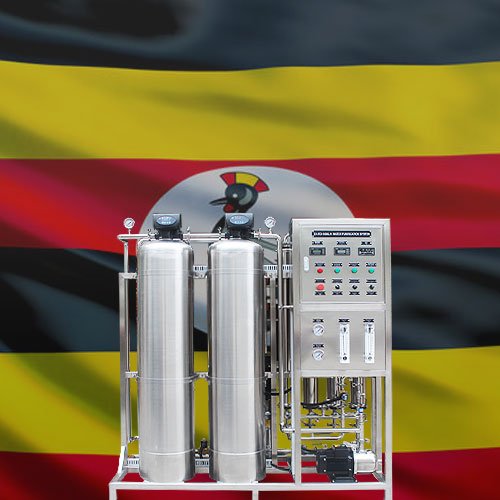
Uganda, officially the Republic of Uganda, is a landlocked country in East Africa. The country is bordered to the east by Kenya, to the north by South Sudan, to the west by the Democratic Republic of the Congo, to the south-west by Rwanda, and to the south by Tanzania. The southern part of the country includes a substantial portion of Lake Victoria, shared with Kenya and Tanzania. Uganda is in the African Great Lakes region, lies within the Nile basin, and has a varied but generally modified equatorial climate. It has a population of around 49.6 million, of which 8.5 million live in the capital and largest city of Kampala.
Total renewable water resources in Uganda
In 2020, renewable water resources per capita for Uganda was 1,313.9 cubic meters per year. Between 1971 and 2020, renewable water resources per capita of Uganda was declining at a moderating rate to shrink from 6,213.9 cubic meters per year in 1971 to 1,313.9 cubic meters per year in 2020.
- Renewable surface water: 60.1 billion cubic meters per year
- Renewable groundwater: 29 billion cubic meters per year
- Renewable water resources: 60.1 billion cubic meters per year
- Dependency ratio: 35.1 %
Meanwhile, CHUNKE provides wide range of filtration and economical solutions based on the Uganda’s water resources. So, our water treatment in Uganda becomes more popular accordingly.
- Surface water is water from river, lake which can be treated using different methods, such as Ultrafiltration Systems, Brackish Water RO accordingly.
- Desalination can be used for water from ocean, or sea source, which can be treated using Sea Water Reverse Osmosis Systems; Desalination Systems
- Ground Water or brackish water is from water located in the pore space of soil and rock “Borehole well”, which can be treated using Reverse Osmosis Systems, Borehole Water Filtration Systems, Well Water Filtration Systems, Chemical Dosing, UV Water Sterilizer accordingly.
- Government water supply, which could have high level of hardness or high level of chlorine, can be treated with Water Softener System, Media Water Filters.
Understand Water Treatment in Uganda
Access to clean drinking water is a global challenge, and Uganda is no exception. With a significant portion of the population lacking access to clean water sources, it is crucial to implement effective water treatment methods to ensure the well-being and health of the Ugandan people. In this article, we will explore the various water treatment methods being employed in Uganda, such as reverse osmosis, ultrafiltration, and desalination. We will also discuss the initiatives undertaken by organizations and the government to improve water treatment and provide clean drinking water to communities across the country.
CHUNKE Projects of Water Treatment in Uganda
Meanwhile, CHUNKE designs and produces water treatment systems that meet the World Health Organization requirements. So, our water treatment in Uganda is suitable for drinking.
CHUNKE has over 15 years of experience as a global provider of B2B water treatment solutions for a variety of applications and industries, we offer a large selection of all types of reverse osmosis, ultrafiltration, electrodeionization and water treatment systems to meet your industrial needs accordingly. CHUNKE’s extensive global experience in engineering and manufacturing allows us to pre-engineer and customize water treatment and reverse osmosis systems to meet a wide range of customer requirements and specifications.
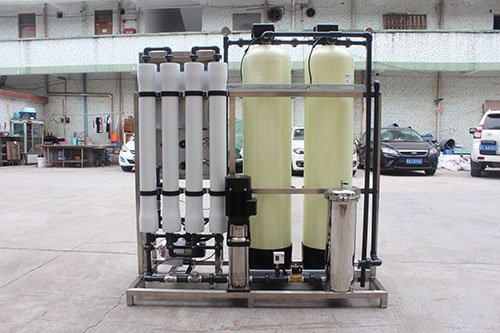
1000LPH Brackish Water Desalination System
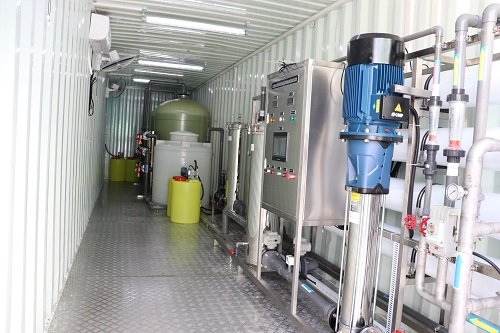
14TPH Containerized Reverse Osmosis System
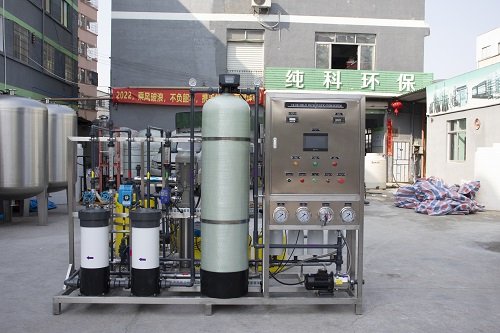
500LPH Sea Water SWRO for Drinking
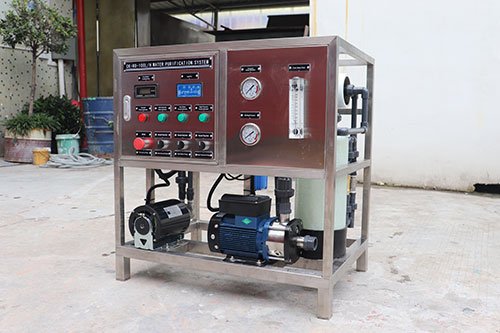
100LPH RO Salt Water Purifier for Irrigation
Water Challenge in Uganda
Uganda, located in East Africa, faces numerous water-related challenges, such as inadequate sanitation facilities, waterborne diseases, and limited access to safe drinking water. A significant portion of the population relies on unsafe water sources, including contaminated wells, rivers, and lakes, leading to health hazards and decreased quality of life. Addressing these issues requires innovative solutions such as reverse osmosis systems.
Water Supply and Sanitation in Uganda
The Ugandan water supply and sanitation sector has made significant progress in urban areas over the years. Sector reforms, including commercialization and modernization of the National Water and Sewerage Corporation (NWSC), have led to increased coverage and improved operational and commercial performance. The reforms have attracted international attention, but there is still a substantial portion of the population without access to improved water sources. The Ministry of Water and Environment (MWE) and NWSC have been working together, along with other stakeholders, to address the water supply and sanitation challenges in the country.
Research and Innovations
Various research and innovation projects have been undertaken in Uganda to develop sustainable and cost-effective water treatment methods. One such project was conducted by Grace Burleson, a senior in mechanical engineering, who worked with a local organization called MAPLE Microdevelopment. Burleson developed a business plan to hire and train locals to build, market, and sell Biosand filters to their communities. Biosand filters, constructed with local materials, are an affordable and effective method of water treatment in underdeveloped countries. This project not only provided a process to treat water but also created economic opportunities for the community.
International Development and Partnerships
International organizations and development banks have played a crucial role in supporting water treatment initiatives in Uganda. The World Bank, through the International Development Association (IDA), provided significant funding to the Uganda Water Management and Development Project. The project aimed to improve water and sanitation services in Gulu municipality, with co-financing from the German Development Bank (KfW). Partnership and coordination with government agencies, such as the Ministry of Water and Environment and the National Water and Sewerage Corporation, have been vital in the successful implementation of these projects.
Impact on Communities
The efforts to improve water treatment in Uganda have had a significant impact on communities across the country. The provision of clean water and sanitation services has attracted new residents, businesses, and employment opportunities. The affordability of new water services has reduced morbidity rates and eliminated domestic violence, as women no longer have to travel long distances to fetch water. Additionally, the value of existing homes and land has increased significantly for those connected to water and wastewater networks.
CHUNKE: Providing Innovative Water Treatment Solutions
CHUNKE, a global provider of water treatment solutions, has been actively involved in addressing Uganda’s water scarcity challenges. With over 15 years of experience, CHUNKE offers a wide range of filtration and economical solutions tailored to Uganda’s specific water resources. Their reverse osmosis and water treatment systems meet the World Health Organization’s requirements, ensuring the delivery of clean and safe water.
Future Directions
Moving forward, it is essential to maintain a focus on delivering water services to end customers. While backbone infrastructure is crucial, it is equally important to ensure that end-users are connected to these services. Utilities should invest in connecting customers efficiently and dedicate resources to maintaining services. Timely coordination with other financing donors and effective donor coordination can also ensure successful implementation of water treatment projects. Stakeholder engagement throughout the project cycle is critical for the design and sustainability of investments, as it fosters a sense of ownership and ensures the long-term success of water treatment initiatives.
Chunke is Trusted Water Treatment Supplier from China
In Uganda, Chunke Water Treatment, a leading supplier of reverse osmosis systems from China, has been actively involved in providing water treatment solutions. With over 15 years of industry experience, Chunke Water Treatment offers a wide range of reverse osmosis and water treatment systems tailored to meet the specific needs of industries and communities in Uganda.
Chunke Water Treatment’s expertise in producing high-quality reverse osmosis systems has contributed to improving water treatment capabilities in Uganda. So, their reliable and efficient RO plants have been implemented in various projects across the country, ensuring access to clean and safe drinking water.

